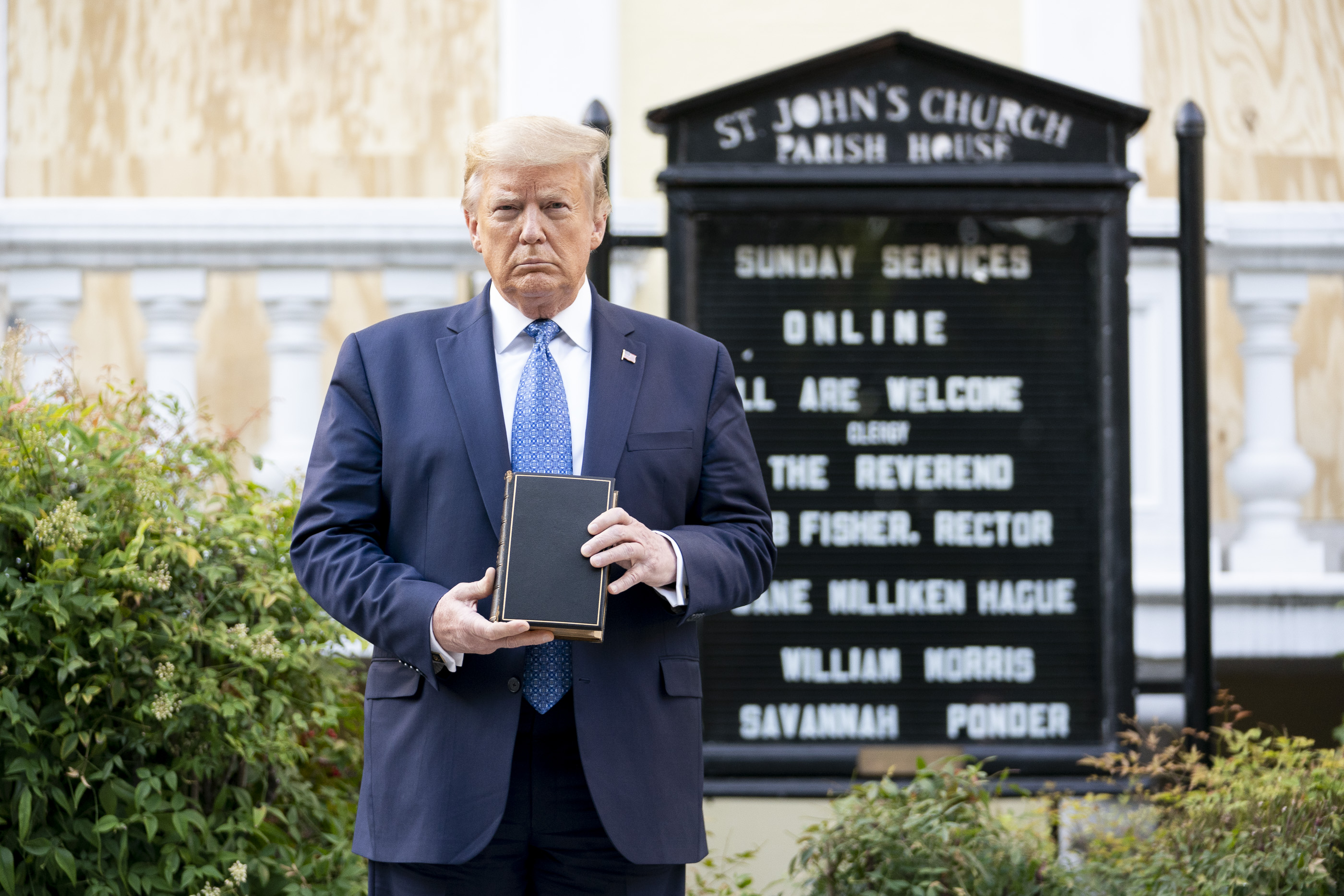
Speaker Mike Johnson (R-La.) walked back his recent claim that Donald Trump was an FBI informant in the Jeffrey Epstein case, after discovering that not even the most dedicated MAGA supporters could suspend disbelief long enough to nod along.
The retraction came only days after Johnson boldly told Capitol Hill reporters that Trump “was an FBI informant to try to take this stuff down,” a statement that briefly transformed the former president from golf-obsessed landlord into part-time G-man. By Sunday, however, Johnson’s office released a revised statement explaining that Trump’s role was less “FBI informant” and more “concerned guy who once picked up the phone.”
“The Speaker is reiterating what the victims’ attorney said, which is that Donald Trump — who kicked Epstein out of Mar-a-Lago — was the only one more than a decade ago willing to help prosecutors expose Epstein for being a disgusting child predator,” Johnson’s office clarified, carefully rephrasing “informant” into the legally safer category of “person who disliked Epstein after losing a real estate bidding war.”
Trump himself has been on the record calling renewed demands for Epstein-related documents a “Democrat hoax that never ends.” This characterization was met with confusion by victims, who clarified that child sex trafficking tends to rank higher than a partisan prank.
Brad Edwards, an attorney for Epstein’s victims, recalled that Trump once did provide assistance in 2009. “He got on the phone, he told me things that were helping our investigation,” Edwards said. While Edwards confirmed Trump was “friendly” to victims at the time, he stopped short of classifying that as “working undercover” for the FBI.
Democrats and a small cluster of Republicans have introduced the Epstein Files Transparency Act, legislation that would compel the release of thousands of related documents. Unsurprisingly, most House Republicans have avoided supporting it, possibly out of fear that Epstein’s flight logs could read like a Mar-a-Lago guest list with bonus subpoena potential.
Rep. Thomas Massie (R-Ky.), one of the few Republicans backing the bill, tried to parse Johnson’s wording without completely combusting. “Being an informant implies some formal connection and ongoing relationship with the FBI,” Massie said on ABC’s This Week. “If it’s a hoax, why was Donald Trump an informant to a hoax?” His comment was followed by a silence so long that even the ABC chyron looked uncomfortable.
Meanwhile, White House spokeswoman Abigail Jackson assured reporters that Trump has “always been committed to justice and transparency for these victims.” The statement, critics noted, bore an unfortunate resemblance to saying O.J. Simpson has “always been committed to safer driving.”
For survivors, the political spin has been especially painful. “This is not a hoax,” said Haley Robson, a registered Republican and one of Epstein’s victims. “This is real trauma.” Her statement appeared to be directed less at Democrats and more at Trump, who has spent recent months treating Epstein revelations like a Netflix docuseries he already skipped through on Twitter.
In the end, Johnson’s claim collapsed under the weight of its own implausibility, leaving Republicans scrambling between two narratives: Trump as heroic informant who bravely fought Epstein, or Trump as angry neighbor who only noticed Epstein’s crimes once he lost out on beachfront property. Either way, the victims’ calls for transparency remain the one thing in Washington everyone insists is bipartisan — at least until someone checks who was on which plane.




